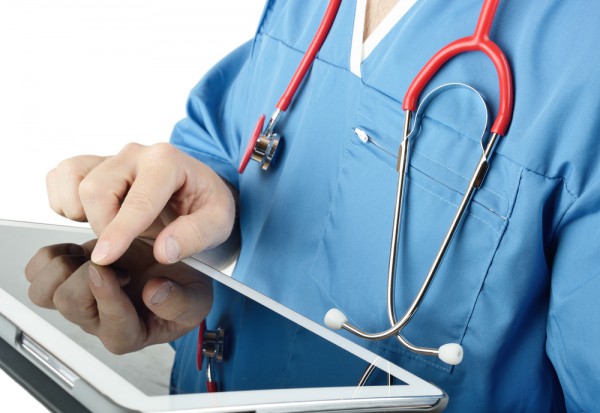The doctor will lose your data now -- 1 in 5 doctors' mobile devices could be at high risk

More than 27 million Android devices running medical apps are likely to have high risk malware installed according to a new report.
The Mobile Threat Intelligence report from threat defense company Skycure is focused on healthcare and finds that doctors who use mobile devices to assist their day-to-day practice are exposed to network threats, and that these significantly increase over time.
In a single month, one in five (22 percent) of mobile devices will be at risk of a network attack. This figure nearly doubles to 39 percent after four months. In addition to network threats, mobile devices continue to be plagued by malware. More than four percent of all Android devices were found to be infected with malicious apps. Medical app users need to be particularly wary, as the report shows 27.79 million devices with medical apps installed might also be infected with high-risk malware. The Skycure mobile threat defense platform conducted 51 million network tests in 2015, and detected the installation of nearly 13,000 malicious apps.
"Mobile is a huge attack target for cyber criminals who are after sensitive personal data like patient records," says Adi Sharabani, CEO of Skycure. "Unlike desktop and network security, mobile security is often the weakest link in the security chain. Healthcare is one place where it is clear that one compromised device puts more than just the device owner’s data and identity at risk".
Among other findings are that 80 percent of doctors use their mobile devices to assist in their day-to-day practice and 28 percent store patient data on their mobile device, making their devices prime targets for cyber criminals.
Eleven percent of mobile devices running an outdated operating system with high-severity vulnerabilities might have stored patient data on them. In addition fourteen percent of mobile devices containing patient data likely have no passcode to protect them.
There is some good news, for example, the percentage of devices with passcodes enabled rose slightly to 52 percent in the last quarter of 2015 from 48 percent in Q3 2015. This may be due to the adoption of new devices featuring biometric passcodes. However, it still leaves nearly half of devices completely unprotected.
The report also shows that users of iPhones and iPads are more protected because they are much more likely to have the most current version of their device's operating system. At the end of 2015, 88 percent of iOS users had upgraded iOS 9. By contrast, only three percent of Android users were using Android 6.0, Marshmallow, at the end of the year.
You can find more about the findings by registering for an on-demand webinar, and there's a summary of the findings in infographic form below.

Image Credit: Rob Hyron / Shutterstock
